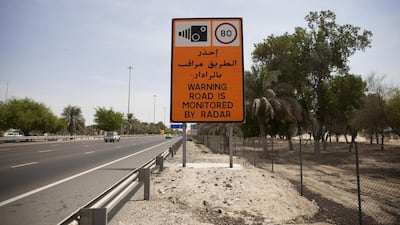Abu Dhabi // A total of 2,534 vehicles were impounded for driving in excess of 200kph in Abu Dhabi from January to August 31, Abu Dhabi Police statistics show. The number of violations involving jaywalking amounted to 28,213 during the same period.
Road accidents across the emirates have dropped by 3,7 per cent in 2012 with 6454 compared to 6700 in 2011, according to statistics of the Traffic Coordination Department at the Ministry of Interior.
The statistics revealed a 12,7 per cent decrease in road fatalities in 2012 which saw 672 deaths compared to 720 in 2011; the number of injuries fell to 7586 in 2012 from 7808 in 2011- a 2,8 per cent drop.
Lt Col Jamal Salem Al Ameri, head of Public Relations Section at the Traffic and Patrols Directorate, cited as common causes of various traffic accidents: excessive speed, using mobile phones while driving, tailgating and inattention.
“86 per cent of accidents are caused by the human factor, and the remaining 14 per cent occurs because of vehicles and roads,” Lt Col Al Ameri said.

